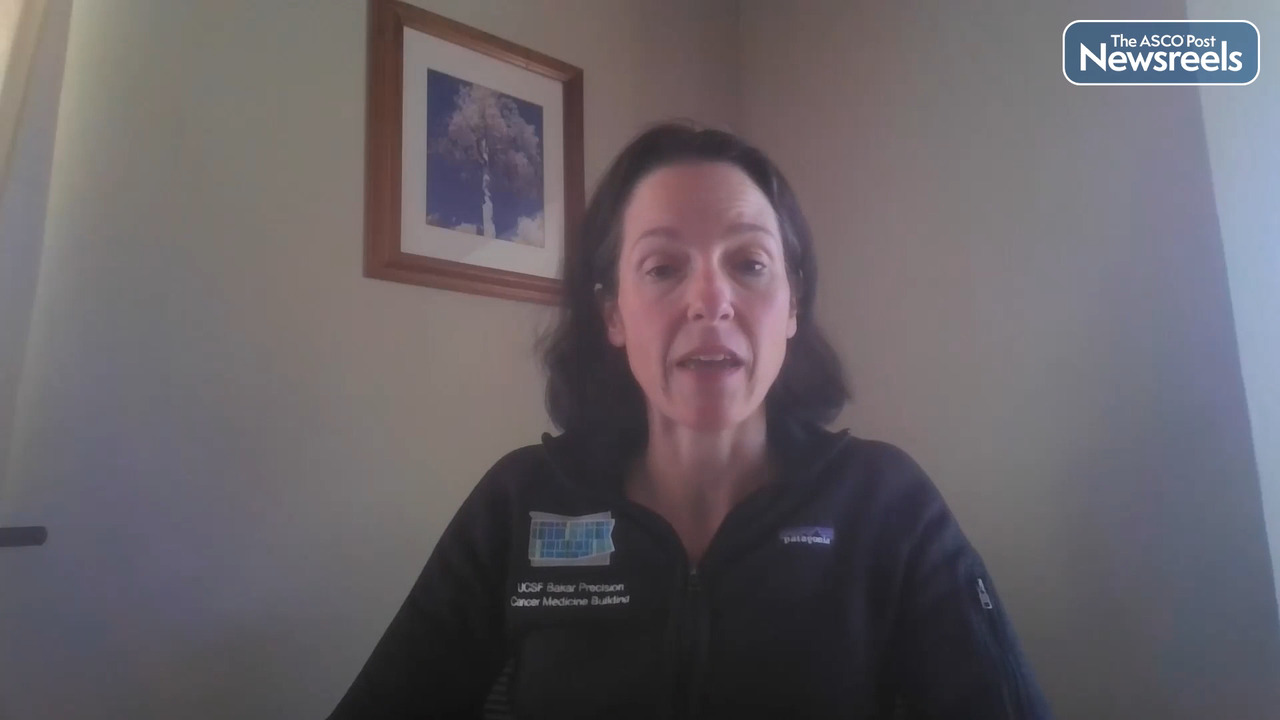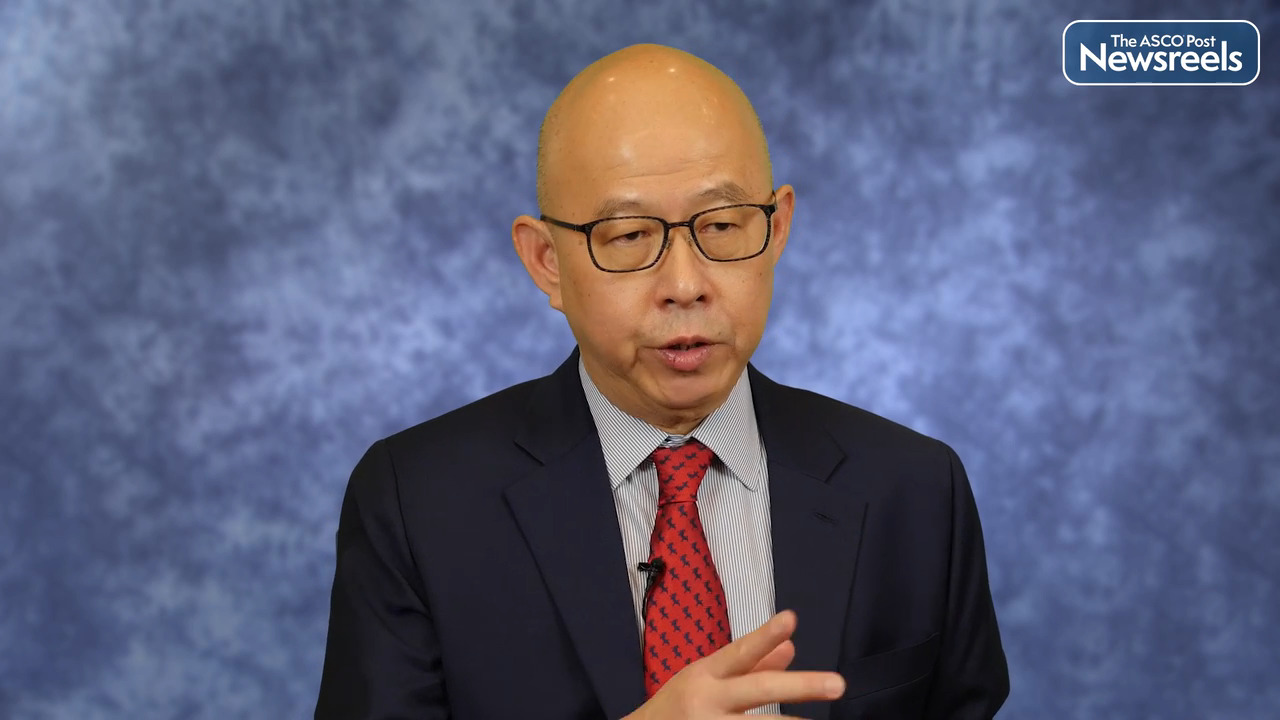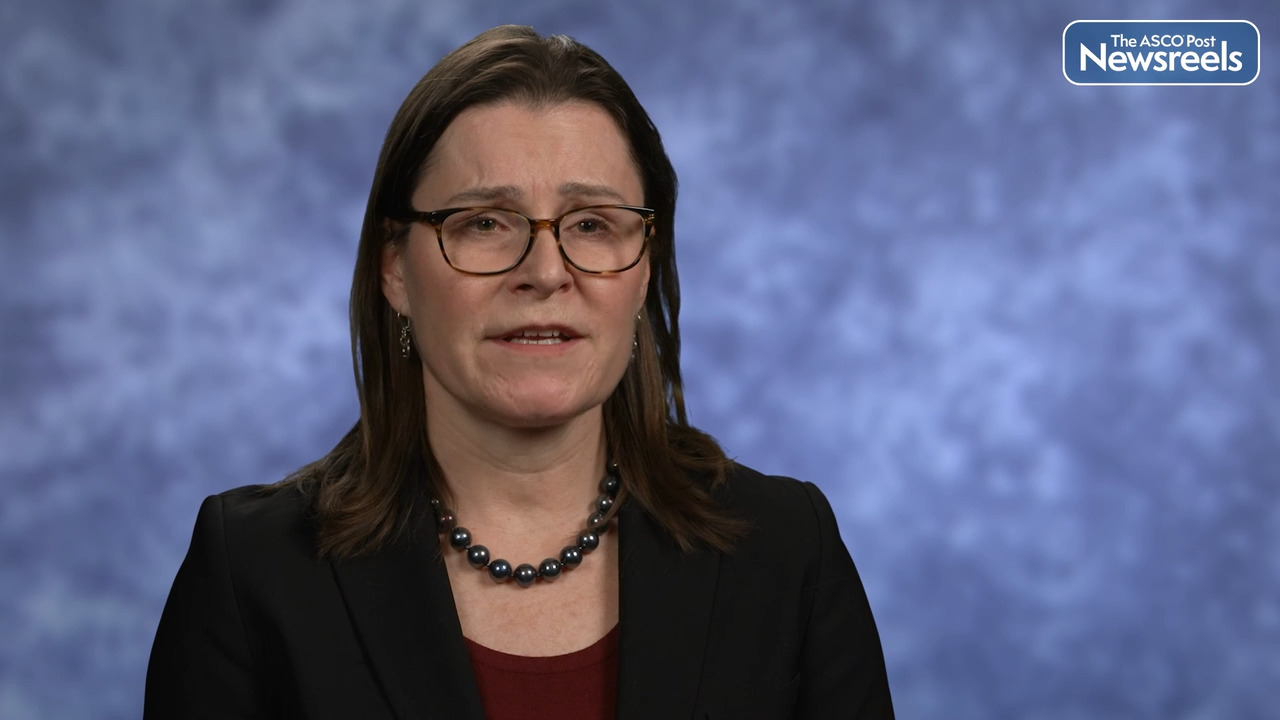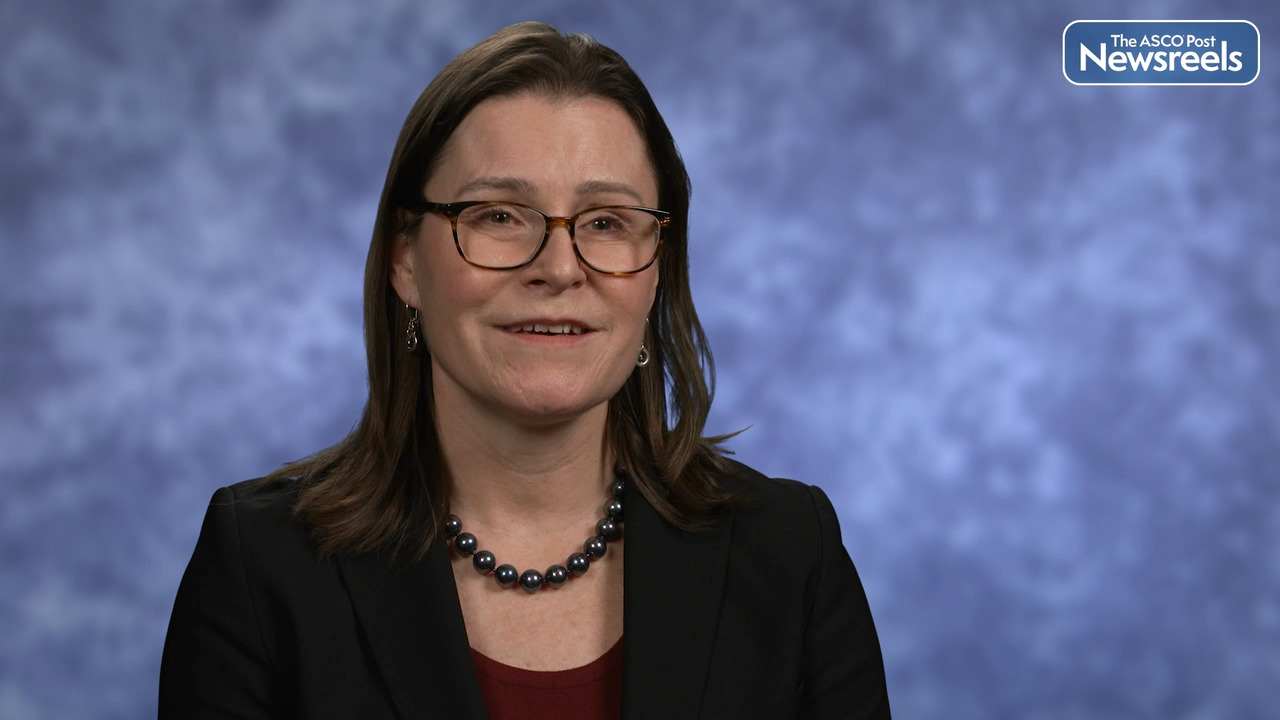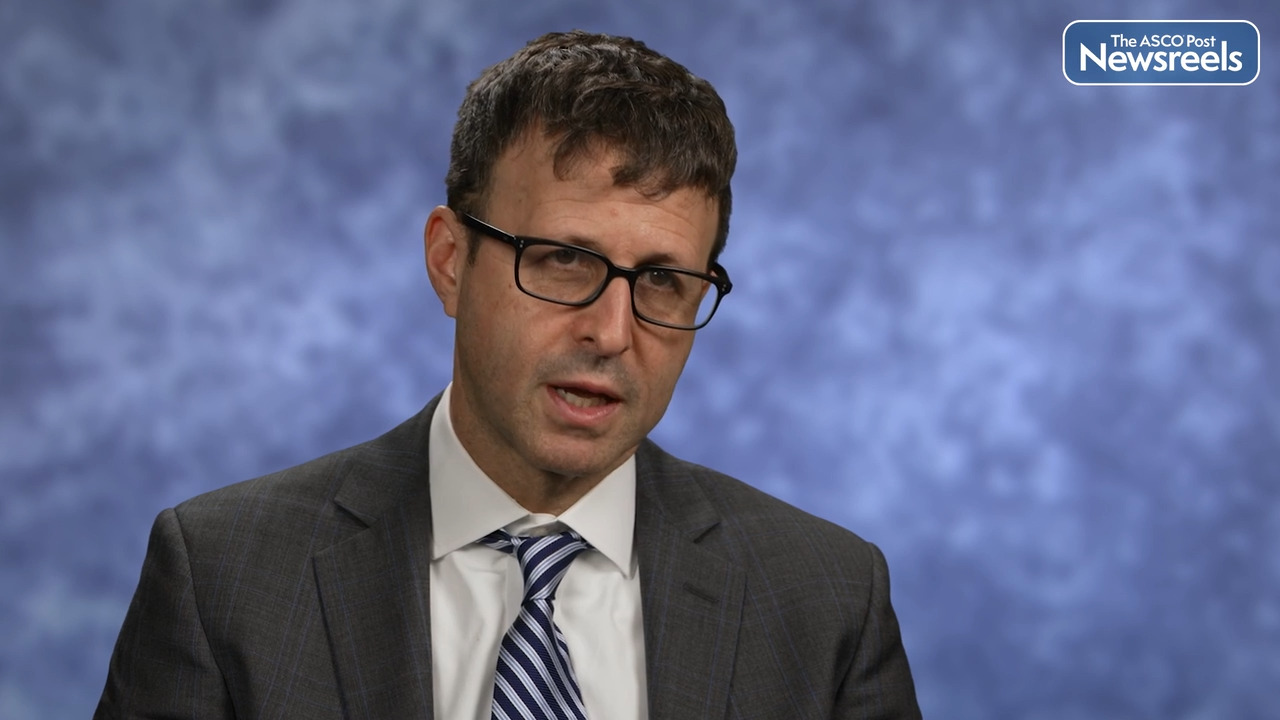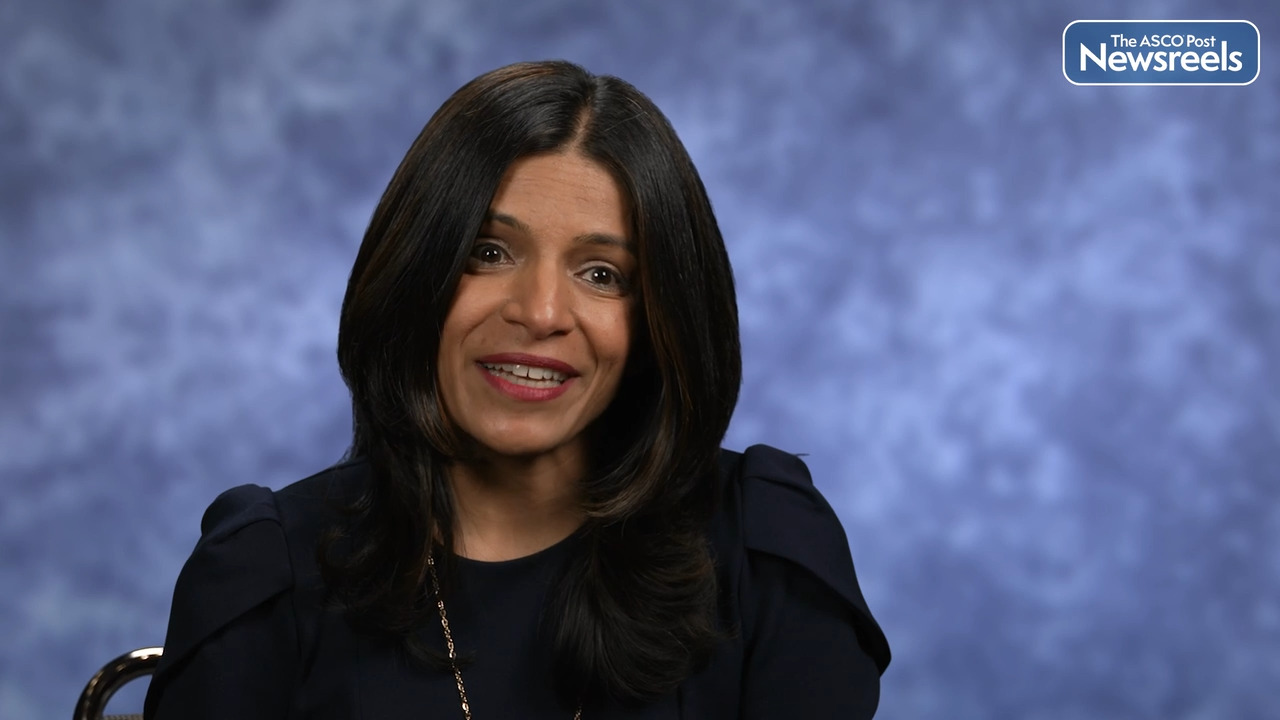FDA Approves Pembrolizumab Plus Chemotherapy for Biliary Tract Cancer
On October 31, the U.S. Food and Drug Administration (FDA) approved pembrolizumab (Keytruda) to be used with gemcitabine and cisplatin for the treatment of patients with locally advanced unresectable or metastatic biliary tract cancer. KEYNOTE-966 Efficacy was evaluated in KEYNOTE-966...
Tislelizumab vs Sorafenib in First-Line Treatment of Unresectable Hepatocellular Carcinoma
In the phase III RATIONALE-301 trial reported in JAMA Oncology, Shukui Qin, MD, PhD, and colleagues found that tislelizumab was noninferior to sorafenib in terms of overall survival as first-line treatment for patients with unresectable hepatocellular carcinoma. Study Details In the open-label...
Cadonilimab, an Anti–PD-1/CTLA-4 Bispecific Antibody, for Advanced Solid Tumors
In a Chinese phase 1b/II trial (COMPASSION-03) reported in The Lancet Oncology, Gao et al found that the anti–PD-1/CTLA-4 bispecific antibody cadonilimab showed activity in previously treated patients with a range of advanced solid tumors, including advanced cervical cancer, esophageal squamous...
FDA Grants Marketing Authorization to Edison Histotripsy System for Treatment of Liver Tumors
On October 9, HistoSonics, the manufacturer of the Edison System and novel histotripsy therapy platforms, announced the marketing authorization of its platform via the U.S. Food and Drug Administration's (FDA) De Novo Classification Request process, a rigorous premarket review pathway for medical...
Expert Point of View: Gentry King, MD
Gentry King, MD, Assistant Professor in the Division of Hematology and Oncology, University of Washington, and Assistant Professor in the Clinical Research Division of Fred Hutchinson Cancer Center, Seattle, offered his thoughts on the findings of NuTide:121. “Only recently, with TOPAZ-1...
NUC-1031/Cisplatin Fails to Improve Outcomes in Advanced Biliary Tract Cancer
As a first-line treatment for advanced biliary tract cancer, an experimental formulation of gemcitabine, NUC-1031, given with cisplatin failed to improve outcomes over standard gemcitabine/cisplatin in the global phase III NuTide:121 trial.1 “NuTide:121 has not advanced the field in biliary tract...
Tucatinib/Trastuzumab for Previously Treated Patients With HER2-Positive Metastatic Biliary Tract Cancer
As reported in the Journal of Clinical Oncology by Nakamura et al, findings in a cohort of the phase II SGNTUC-019 basket study showed that tucatinib plus trastuzumab was active in previously treated patients with HER2-positive metastatic biliary tract cancer who had not received prior...
More on Biliary Tract Cancer From ASCO 2023: Focus on Zanidatamab
The HER2-targeting bispecific antibody zanidatamab generated rapid and durable responses in patients with HER2-amplified, locally advanced, unresectable or metastatic biliary tract cancer previously treated with gemcitabine, investigators from the global phase IIb HERIZON-BTC-01 study reported at...
Expert Point of View: Peter Paul Yu, MD, FACP, FASCO
ASCO EXPERT Peter Paul Yu, MD, FACP, FASCO, commented on the implications of the study presented by Zhao et al. Dr. Yu is Physician-in-Chief at the Hartford HealthCare Cancer Institute. “Tumor microbiome studies are at the cutting edge of precision medicine metabolomics,” Dr. Yu stated....
Gut Microbiome Differs in Responders and Nonresponders to Immune Checkpoint Inhibitors in Patients With HCC
In patients with advanced hepatocellular carcinoma (HCC), gut microbiome characteristics differed between those who had durable responses to immunotherapy and those who did not, according to a retrospective study presented at the 2023 ASCO Breakthrough meeting.1 The presence of Clostridium...
Immune Checkpoint Inhibitors for Patients With Child-Pugh Class B vs A Advanced Hepatocellular Carcinoma
In a systematic review and meta-analysis reported in JAMA Oncology, Xie et al explored outcomes associated with immune checkpoint inhibition among patients with advanced hepatocellular carcinoma with Child-Pugh B vs Child-Pugh A liver function. Study Details The analysis included 22 studies...
Personalized Calculator May Be Predictive of Benefits From Adjuvant TACE in Patients With Hepatocellular Carcinoma Undergoing Hepatectomy
Researchers have developed a personalized calculator that may be capable of predicting the reduced risk of early recurrence in patients with hepatocellular carcinoma, according to a recent study published by Chen et al in eGastroenterology. Background Hepatocellular carcinoma is the most common...
Does Daily Consumption of Sugar-Sweetened Beverages Increase the Risk of Liver Disease Among Postmenopausal Women?
Approximately 65% of adults in the United States consume sugar-sweetened beverages daily. Researchers led a study examining the associations among intake of sugar-sweetened or artificially sweetened beverages and the incidence of liver cancer and chronic liver disease mortality in a large cohort of ...
Camrelizumab Plus Rivoceranib vs Sorafenib in Unresectable Hepatocellular Carcinoma
In a largely Asian phase III study (CARES-310) reported in The Lancet, Qin et al found that the combination of camrelizumab and rivoceranib (also known as apatinib) significantly prolonged progression-free and overall survival vs sorafenib in the first-line treatment of unresectable or metastatic...
Volume of Liver Resected During Gallbladder Surgery May Not Significantly Affect Overall Survival in Patients With Gallbladder Cancer
Investigators have found that overall survival rates may not vary significantly among patients with gallbladder cancer who have had different volumes of their livers resected, as long as the cancer is completely removed, according to a study published by Vega et al in the Annals of Surgical...
Zanidatamab in HER2-Positive Advanced Biliary Tract Cancer
In the phase IIb HERIZON-BTC-01 trial reported in The Lancet Oncology, James J. Harding, MD, and colleagues found that zanidatamab—a bispecific antibody targeting two distinct HER2 epitopes—showed activity in previously treated patients with HER2-positive advanced biliary tract cancer. Study...
EGFR and ERBB2 Mutations May Be Associated With Lenvatinib-Resistant Hepatocellular Carcinoma
A genetic marker involving the EGFR and ERBB2 genes may be predictive of which patients with hepatocellular carcinoma are most likely to develop resistance to lenvatinib, according to a study published by Lim et al in Gastroenterology. The new findings could help researchers develop alternative...
Zanidatamab Shows Activity in Refractory HER2-Amplified Biliary Tract Cancer
The HER2-targeted bispecific antibody zanidatamab demonstrated durable responses in patients with treatment-refractory HER2-positive biliary tract cancer, according to research presented by Shubham Pant, MD, and colleagues at the 2023 ASCO Annual Meeting (Abstract 4008). The results were also...
IMbrave050 Trial: Adjuvant Regimen of Atezolizumab Plus Bevacizumab in Resectable Hepatocellular Carcinoma
Adjuvant treatment with the combination of atezolizumab and bevacizumab achieved a statistically significant and clinically meaningful improvement in recurrence-free survival compared with active surveillance alone in patients with high-risk hepatocellular carcinoma following curative-intent...
Cancer-Specific Mortality Rates Vary Widely Across the Globe, Study Finds
Investigators have found that in the majority of countries studied, the recent mortality rates for all major cancer types have decreased except for lung cancer among female patients and hepatic cancer among male patients—where increasing rates were observed in most countries, according to a novel...
Immigrant Adults With Hepatocellular Carcinoma May Have Higher Survival Rates Than Those Born in the United States
Immigrant adult patients who have hepatocellular carcinoma and reside in the United States may have higher rates of survival compared with those who have the disease and were born in the United States, according to a new study published by Zhou et al in the Journal of the National Cancer Institute. ...
Three New Studies Unveil Recent Developments in the Screening and Treatment of Biliary Tract Cancer and Colorectal Cancer
Researchers have revealed the impacts of several new developments in screening and treating patients with biliary tract cancer and colorectal cancer—including the development of patient-derived organoids to test chemotherapy response, the use of nonsteroidal anti-inflammatory drugs (NSAIDs) to...
Immunotherapy/Chemotherapy Combination Prolongs Survival in Advanced Biliary Tract Cancers
The addition of the checkpoint inhibitor pembrolizumab to chemotherapy with cisplatin/gemcitabine as first-line therapy improved overall survival in patients with advanced biliary tract cancer, according to results of the KEYNOTE-966 trial presented at the 2023 American Association for Cancer...
Elena Garralda, MD, MSc, Discusses Findings From the KRYSTAL-1 Trial
Elena Garralda, MD, MSc, Director of Early Drug Development at Vall d’Hebron University Hospital and Director of the Phase I Unit at NEXT Oncology, Barcelona, was invited to discuss the KRYSTAL-1 findings. “In KRYSTAL-1, adagrasib monotherapy has demonstrated clinically meaningful activity in a...
KRYSTAL-1 Update: Adagrasib Yields Benefit in Variety of KRAS G12C–Mutated Tumors
In the phase I/II KRYSTAL-1 trial, the KRAS inhibitor adagrasib demonstrated clinical activity in previously treated patients with pancreatic ductal adenocarcinoma, biliary tract cancer, and other solid tumors harboring KRAS G12C mutations, according to research presented at the ASCO Plenary Series ...
Risk of Early-Onset Digestive Tract Cancers Among Young Adults With Nonalcoholic Fatty Liver Disease
In a Korean nationwide cohort study reported in the Journal of Clinical Oncology, Park et al found that individuals aged 20 to 39 years with nonalcoholic fatty liver disease (NAFLD) were at an increased risk of developing early-onset digestive tract cancers. Study Details The study included data on ...
Second-Line Liposomal Irinotecan Plus Fluorouracil/Leucovorin in Metastatic Biliary Tract Cancer
In an updated analysis of a Korean phase IIb trial (NIFTY) reported in JAMA Oncology, Hyung et al found that the addition of nanoliposomal irinotecan to fluorouracil and leucovorin significantly improved progression-free survival in patients with metastatic biliary tract cancer with disease...
R. Katie Kelley, MD, on Biliary Tract Cancer: Data From KEYNOTE-966 on Pembrolizumab, Gemcitabine, and Cisplatin
R. Katie Kelley, MD, of the Helen Diller Family Comprehensive Cancer Center at the University of California, San Francisco, discusses phase III findings of the KEYNOTE-966 study, which showed that adding the immune checkpoint inhibitor pembrolizumab to gemcitabine and cisplatin improved overall survival in patients with untreated metastatic or unresectable biliary tract cancer. (Abstract CT008)
Pierce K.H. Chow, PhD, MBBS, on Hepatocellular Carcinoma: New Data From the IMbrave050 Trial of Atezolizumab, Bevacizumab, and Active Surveillance
Pierce K.H. Chow, PhD, MBBS, of the National Cancer Centre, Singapore and Duke-NUS Medical School, discusses phase III findings showing that, for patients with hepatocellular carcinoma at high risk of disease recurrence, adjuvant therapy with atezolizumab plus bevacizumab after resection or thermal ablation was more effective than active surveillance. According to Dr. Chow, these results could lead to reassessment of surgical resection in this disease. (Abstract CT003)
IMbrave050: Recurrence-Free Survival With Adjuvant Atezolizumab Plus Bevacizumab for HCC
Adjuvant therapy with atezolizumab and bevacizumab improved recurrence-free survival in patients with hepatocellular carcinoma (HCC) following surgical resection or ablation, according to results from the phase III IMbrave050 clinical trial, which were presented by Chow et al at the American...
First-Line Pembrolizumab Plus Gemcitabine/Cisplatin May Improve Overall Survival in Advanced Biliary Tract Cancer
The addition of pembrolizumab to gemcitabine and cisplatin improved overall survival in patients with untreated metastatic or unresectable biliary tract cancer, according to results from the phase III KEYNOTE-966 clinical trial, which were presented by Robin Katie Kelley, MD, and colleagues at the...
ChatGPT May Have Potential to Help Educate Patients With Cirrhosis and Hepatic Cancer in Basic Knowledge, Lifestyle, and Treatment Domains
Investigators revealed that the artificial intelligence (AI) chatbot ChatGPT may help improve health outcomes for patients with cirrhosis and hepatic cancer by providing easy-to-understand information about basic knowledge, lifestyle modifications, and treatment options for these conditions,...
Hypercalcemia in Patients With Cholangiocarcinoma
In a study reported in a research letter in JAMA Oncology, Konstantinidou et al found that the prevalence of hypercalcemia increased over time in patients with cholangiocarcinoma and was significantly more common in those with IDH1-mutant intrahepatic disease. Study Details The study involved...
Expert Point of View: Imane H. El Dika, MD
The sessions’ invited discussant, Imane H. El Dika, MD, Assistant Attending Physician at Memorial Sloan Kettering Cancer Center, New York, said the results of the two trials in advanced biliary tract cancer were clear, and did not change the current standard of care of durvalumab combined with...
What Can Be Learned From Negative Findings of Two Trials in Biliary Tract Cancer
Biliary tract cancer is particularly difficult to treat, with a median overall survival of about 1 year with standard-of-care gemcitabine-based regimens. Advanced biliary tract cancer is an area of significant unmet need because of its aggressive nature, limited treatment options, and poor...
Laura A. Dawson, MD, on Hepatocellular Carcinoma: Phase III Data on Sorafenib vs Stereotactic Body Radiation Therapy
Laura A. Dawson, MD, of Canada’s Princess Margaret Cancer Centre, discusses phase III findings from the NRG/RTOG1112 study, which showed that stereotactic body radiation therapy (SBRT) administered prior to sorafenib vs sorafenib alone, improved outcomes in patients with advanced hepatocellular carcinoma. SBRT may become a new standard treatment option for patients with locally advanced disease, especially in the presence of macrovascular invasion (Abstract 489).
Adjuvant S-1 vs Observation for Resected Biliary Tract Cancer
In a Japanese phase III trial (JCOG1202, ASCOT) reported in The Lancet, Nakachi et al found that adjuvant S-1 was associated with significantly improved overall survival vs observation in patients with resected biliary tract cancer. Study Details The multicenter, open-label trial included 440...
Adjuvant FOLFOX Hepatic Arterial Infusion in Hepatocellular Carcinoma With Microvascular Invasion
In a Chinese phase III trial reported in the Journal of Clinical Oncology, Li et al found that adjuvant hepatic arterial infusion chemotherapy with FOLFOX (fluorouracil, leucovorin, and oxaliplatin) significantly improved disease-free survival vs routine follow-up in patients with hepatocellular...
Laura A. Dawson, MD, on Hepatocellular Carcinoma and Liver Metastases: Recent Treatment Data on Palliative Radiotherapy
Laura A. Dawson, MD, of Canada’s Princess Margaret Cancer Centre, discusses phase III findings showing that compared with best supportive care alone, single-fraction whole-liver radiation therapy appears to improve hepatic pain in the majority of patients with treatment-refractory or -ineligible hepatocellular carcinoma or liver metastases. In addition, the data indicated a trend for improved 3-month survival with radiation therapy (Abstract LBA492).
Richard S. Finn, MD, on HCC: Tislelizumab vs Sorafenib, and Their Impact on Quality of Life
Richard S. Finn, MD, of the David Geffen School of Medicine at the University of California, Los Angeles, discusses findings from the RATIONALE-301 study, which showed that patients with unresectable hepatocellular carcinoma (HCC) treated with first-line tislelizumab had better health-related quality-of-life outcomes compared with those treated with sorafenib, particularly in terms of fatigue and physical functioning. These results, along with the effects on overall survival, response rate, and a favorable safety profile, support the benefit of tislelizumab as a potential first-line treatment option in this patient population (Abstract 495).
Rachna T. Shroff, MD, on Biliary Tract Cancers: Recent Findings on Use of Gemcitabine, Cisplatin, and Nab-paclitaxel
Rachna T. Shroff, MD, of the University of Arizona Cancer Center, discusses phase III results from the SWOG 1815 study, which compared gemcitabine, cisplatin, and nab-paclitaxel vs gemcitabine and cisplatin in patients with newly diagnosed, advanced biliary tract cancers. Although adding nab-paclitaxel to gemcitabine and cisplatin did not improve median overall survival in this population, exploratory analyses in patients with locally advanced disease or gallbladder cancer suggest potential clinical utility in these settings, which may warrant further evaluation (Abstract LBA490).
Futibatinib in Previously Treated Patients With Advanced FGFR2-Rearranged Intrahepatic Cholangiocarcinoma
In a phase II study (FOENIX-CCA2) published in The New England Journal of Medicine, Lipika Goyal, MD, and colleagues found that the next-generation, covalently binding FGFR1-4 inhibitor futibatinib showed activity in previously treated patients with unresectable or metastatic FGFR2-altered...
Tremelimumab-actl in Combination With Durvalumab for Unresectable Hepatocellular Carcinoma
On October 21, 2022, tremelimu-mab-actl was approved by the U.S. Food and Drug Administration (FDA) for use in combination with durvalumab in the treatment of unresectable hepatocellular carcinoma.1 Supporting Efficacy Data Approval was based on a comparison of overall survival in the...
KEYNOTE-394: Pembrolizumab as Second-Line Therapy in Asian Patients With Advanced HCC
As reported in the Journal of Clinical Oncology by Qin et al, the phase III KEYNOTE-394 trial showed overall and progression-free survival benefits with pembrolizumab vs placebo in previously treated Asian patients with advanced hepatocellular carcinoma (HCC). Study Details The double-blind trial...
Nivolumab Plus Cabozantinib With or Without Ipilimumab in Advanced Hepatocellular Carcinoma
As reported in the Journal of Clinical Oncology by Thomas Yau, MD, and colleagues, findings in a cohort of the phase I/II CheckMate 040 trial indicated the activity of nivolumab/cabozantinib with or without ipilimumab in patients with advanced hepatocellular carcinoma. Study Details In the...
Experimental Drug Under Study in Liver Cancer
A new drug that inhibits an enzyme playing a crucial role in cell division and growth has shown signs of anticancer activity with manageable side effects in patients with liver cancer who have been treated unsuccessfully previously with up to three lines of treatment. These findings were presented...
Novel DELFI AI Blood Test May Aid in Detecting Hepatocellular Carcinoma
A novel artificial intelligence (AI) blood testing technology—known as DELFI (DNA evaluation of fragments for early interception)—may successfully detect more than 80% of hepatocellular carcinomas, according to a new study published by Foda et al in Cancer Discovery. The findings were also...
Futibatinib for Cholangiocarcinoma With FGFR2 Gene Fusion or Other Rearrangements
On September 30, 2022, futibatinib was granted accelerated approval for adults with previously treated, unresectable, locally advanced, or metastatic intrahepatic cholangiocarcinoma harboring fibroblast growth factor receptor 2 (FGFR2) gene fusions or other rearrangements.1 Supporting Efficacy ...
Durvalumab Plus Chemotherapy in Advanced Biliary Tract Cancer
On September 2, 2022, durvalumab was approved for use in combination with gemcitabine/cisplatin for the treatment of patients with locally advanced or metastatic biliary tract cancer.1 Supporting Efficacy Data Approval was based on findings in the double-blind TOPAZ-1 trial (ClinicalTrials.gov...
Expert Point of View: Robin Kate Kelley, MD
Robin Kate Kelley, MD, Professor of Clinical Medicine at the University of California, San Francisco, was invited to discuss the results of LEAP-002.1 She said the main takeaway is that lenvatinib monotherapy is active as a preferred first-line agent for fit patients who have contraindications to...
